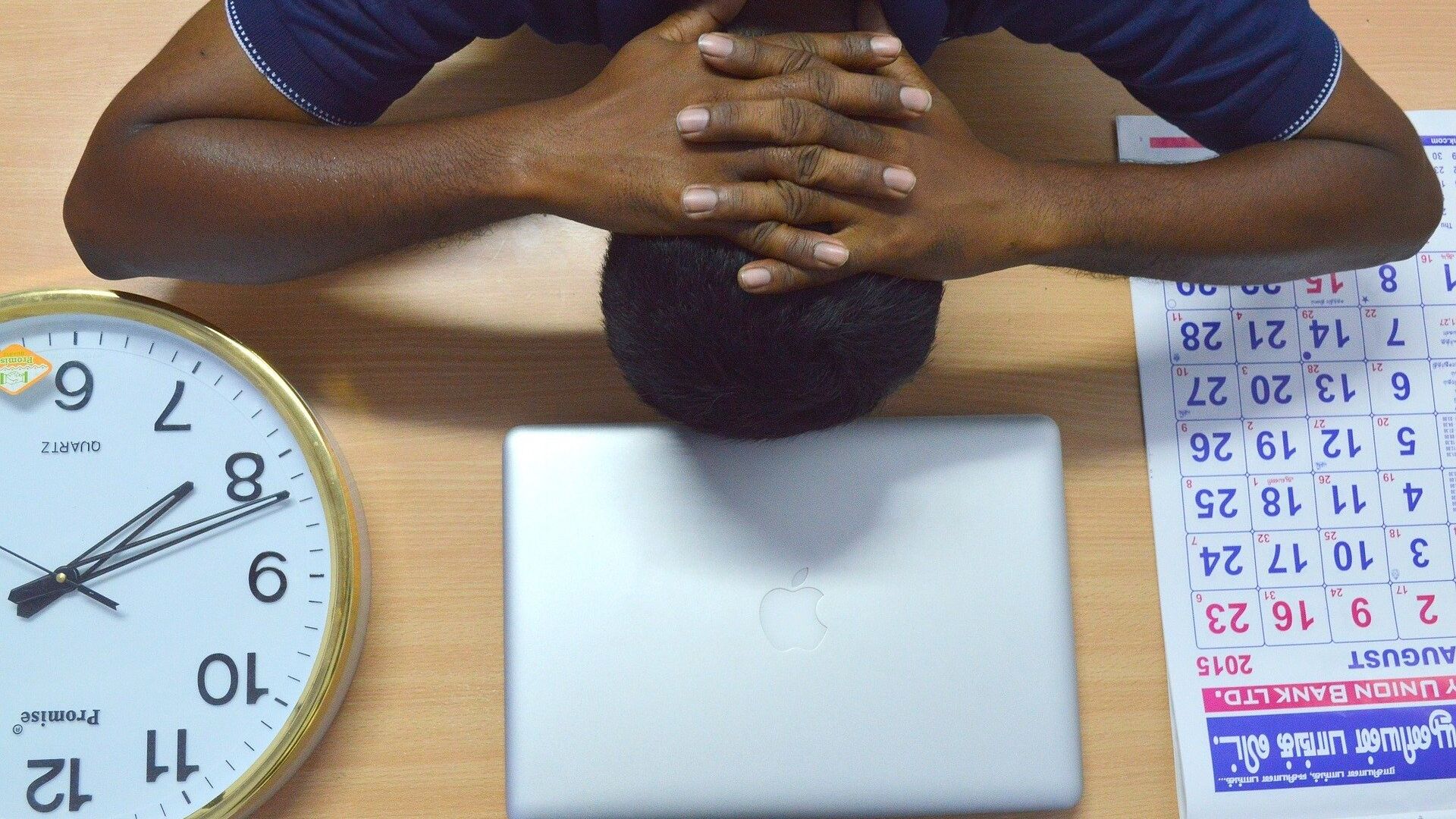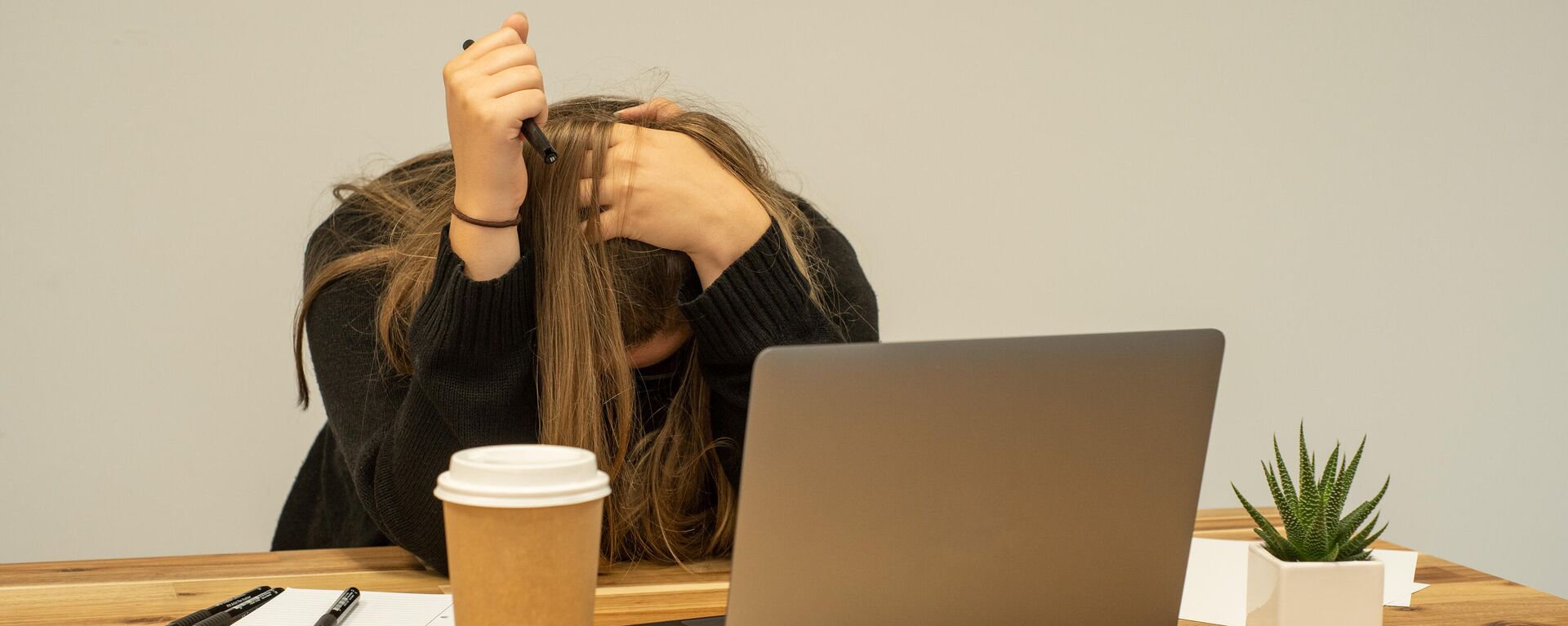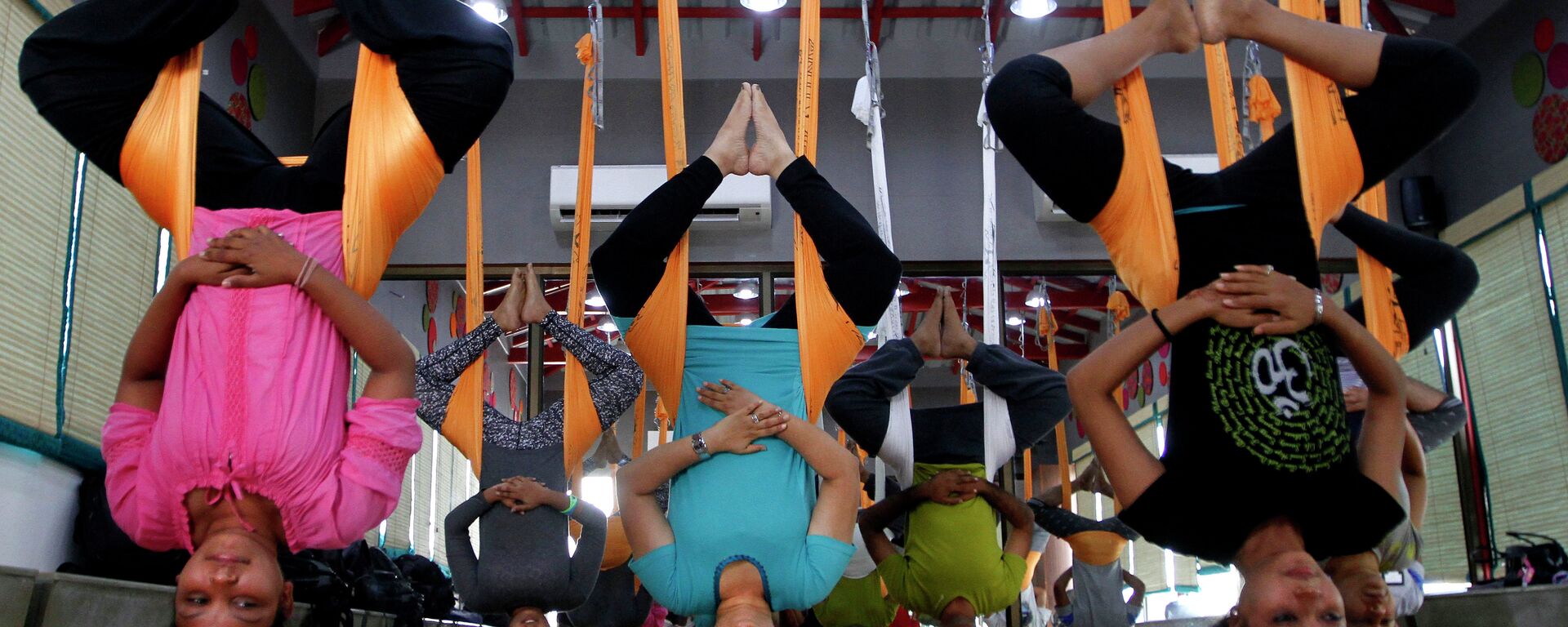https://sputnikglobe.com/20220426/like-brushing-your-teeth-how-15-minutes-of-stress-busting-mental-hygiene-can-work-wonders--1095071946.html
'Like Brushing Your Teeth': How 15 Minutes of Stress-Busting 'Mental Hygiene' Can Work Wonders
'Like Brushing Your Teeth': How 15 Minutes of Stress-Busting 'Mental Hygiene' Can Work Wonders
Sputnik International
Just as most people visit a dentist regularly and brush their teeth twice a day, implementing a specific daily routine could help harness or reduce stress to... 26.04.2022, Sputnik International
2022-04-26T14:41+0000
2022-04-26T14:41+0000
2022-04-26T14:41+0000
stress
healthy lifestyle
science & tech
https://cdn1.img.sputnikglobe.com/img/105551/20/1055512014_0:87:1920:1167_1920x0_80_0_0_bd20e879f3711febfab22a619e4ef5ba.jpg
Following a specific practice for stress relief that takes no more than 15 minutes can help deal with everyday issues while also improving well-being in older age, according to a clinical psychologist.Cortisol, secreted by the adrenal glands, is the main stress hormone. When cortisol levels rise, all of the body’s energy is channelled into handling the stressor instead of regulating other bodily functions. So, simply put, tackling stress requires lowering the levels of this steroid hormone.Increased cortisol may trigger a number of physical health complications. The World Health Organisation (WHO), in its report “Mental health, resilience and inequalities”, recognises that stress-induced raised cortisol levels may be implicated in the development of conditions ranging from coronary heart disease, stroke, and diabetes to mental illness.Broderick Sawyer, clinical psychologist in Louisville, Kentucky, has his own method for what he dubbed “mental health hygiene”."This is the mental health equivalent of brushing your teeth before you need a root canal", he was cited by CNN as saying.For those who might argue that they do not have time for an additional morning routine, Sawyer added:According to his method, one should begin the day by setting aside 15 minutes in the morning to slow down and focus on your inner well-being, making the routine more relaxing.For example, if you like drinking your morning coffee, do so slowly with some deep breaths. Instead of talk radio, it might be better to listen to music while getting to work.Sawyer suggests that one should “practice feeling happy” by trying out various new activities and identifying those that bring you a “sense of calm”.Switching up tried-and-tested routines with something new, like sitting outside for your breakfast, or going for a walk, or doing some stretching exercises is also a tool worth trying.After trying a new activity during the 15 minutes, one should then monitor during the rest of the day how it made one feel: calmer or more energised and better able to handle stress, the clinical psychologist is cited as saying."You just sort of trip onto those things through your own practice of intuitively trying things out. Then if they don't work, that's OK and just write that down", Sawyer said.Different contexts matter, added the expert, as he emphasised that no one single action could help all the time.Accordingly, on a day promising a tightly-packed schedule one might want to end the 15 minutes with an extra shot of espresso, if one’s health allows it. However, ahead of a day promising to be more leisurely, a concentration meditation could be more effective.At least three days a week, Sawyer suggests adding some low-impact physical activity, like walking, biking, or yoga.Finally, at the end of each day, winding down is very important. This can only be achieved by decisively turning off work notifications, stepping away from the computer, putting aside phones and other devices with screens."Once we find that tool or collection of tools for ourselves, we then get to master how well we use it", Sawyer said.
https://sputnikglobe.com/20190716/petting-dogs-cats-for-just-10-minutes-has-significant-impact-on-stress---study-1076266551.html
https://sputnikglobe.com/20220412/over-60-of-american-public-experiencing-higher-stress-levels-than-at-start-of-pandemic---study-1094686577.html
https://sputnikglobe.com/20210621/peace-and-no-stress-how-yoga-is-gaining-popularity-among-indian-millennials-1083194354.html
Sputnik International
feedback@sputniknews.com
+74956456601
MIA „Rosiya Segodnya“
2022
News
en_EN
Sputnik International
feedback@sputniknews.com
+74956456601
MIA „Rosiya Segodnya“
Sputnik International
feedback@sputniknews.com
+74956456601
MIA „Rosiya Segodnya“
stress, healthy lifestyle, science & tech
stress, healthy lifestyle, science & tech
'Like Brushing Your Teeth': How 15 Minutes of Stress-Busting 'Mental Hygiene' Can Work Wonders
Just as most people visit a dentist regularly and brush their teeth twice a day, implementing a specific daily routine could help harness or reduce stress to help one get through the day’s challenges.
Following a specific practice for
stress relief that takes no more than 15 minutes can help deal with everyday issues while also improving well-being in older age, according to a clinical psychologist.
Cortisol, secreted by the adrenal glands, is the main stress hormone. When cortisol levels rise, all of the body’s energy is channelled into handling the stressor instead of regulating other bodily functions. So, simply put, tackling stress requires lowering the levels of this steroid hormone.
Increased cortisol may
trigger a number of physical health complications. The World Health Organisation (WHO), in its report “Mental health, resilience and inequalities”, recognises that stress-induced raised cortisol levels may be implicated in the development of conditions ranging from coronary heart disease, stroke, and diabetes to mental illness.
Broderick Sawyer, clinical psychologist in Louisville, Kentucky, has his own method for what he dubbed “mental health hygiene”.
"This is the mental health equivalent of brushing your teeth before you need a root canal", he was cited by CNN as saying.
For those who might argue that they do not have time for an additional morning routine, Sawyer added:
"It's not about 'I don't have time', you have time for a lot of things. If we really can (practice mindfulness) throughout the day, then our mental health needs less of our energy, less of our juice".
According to his method, one should begin the day by setting aside 15 minutes in the morning to slow down and focus on your inner well-being, making the routine more relaxing.
For example, if you like drinking your morning coffee, do so slowly with some deep breaths. Instead of talk radio, it might be better to listen to music while getting to work.
Sawyer suggests that one should “practice feeling happy” by trying out various new activities and identifying those that bring you a “sense of calm”.
Switching up tried-and-tested routines with something new, like sitting outside for your breakfast, or going for a walk, or doing some stretching exercises is also a tool worth trying.
After trying a new activity during the 15 minutes, one should then monitor during the rest of the day how it made one feel: calmer or more energised and better able to handle stress, the clinical psychologist is cited as saying.
"You just sort of trip onto those things through your own practice of intuitively trying things out. Then if they don't work, that's OK and just write that down", Sawyer said.
Different contexts matter, added the expert, as he emphasised that no one single action could help all the time.
"So, if I have a workday with a lot of meetings, maybe I need to be a little more chipper and buoyant. Maybe I need to be more laser-focused because it is a heavy writing day. Those are different energies", said Sawyer.
Accordingly, on a day promising a tightly-packed schedule one might want to end the 15 minutes with an extra shot of espresso, if one’s health allows it. However, ahead of a day promising to be more leisurely, a concentration meditation could be more effective.
At least three days a week, Sawyer suggests adding some low-impact physical activity, like walking, biking, or yoga.
Finally, at the end of each day, winding down is very important. This can only be achieved by decisively turning off work notifications, stepping away from the computer, putting aside phones and other devices with screens.
"Once we find that tool or collection of tools for ourselves, we then get to master how well we use it", Sawyer said.







